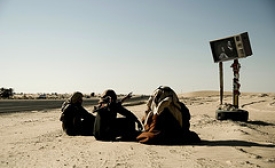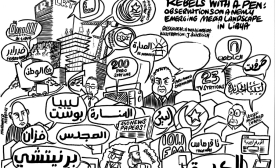middle east

This project examined core issues at the intersection of media and public diplomacy in the Middle East from 2004 to 2005.

An Evaluation of Alhurra Television Programming is a multi-method evaluation of the quality and effectiveness of Alhurra's news broadcasting to the Middle East.
Alhurra – “The Free One” – is a U.S. government-funded broadcaster available throughout the Middle East. Established in 2004, Alhurra, along with its FM radio counterpart, Radio Sawa (launched in 2002), represent America’s largest commitment to public diplomacy in the region. Over the last six years, the U.S. government has invested just under $500 million dollars in the two broadcasters.
I have to admit I did not expect to be writing what could be deemed a defense of Al-Hurra -- the U.S.-sponsored Arabic language television station beamed across the Arab world. Al-Hurra (which means "the free one" in Arabic) has come under scrutiny over the past few years for its potential impact on U.S. public diplomacy objectives.
The New York Times published an interview with the United States Undersecretary for Public Diplomacy, Karen Hughes, on August 28, 2007. The interview was conducted by Robert McMahon of the Council on Foreign Relations and can be found here.







